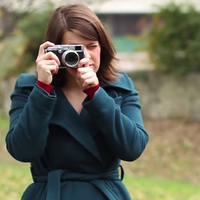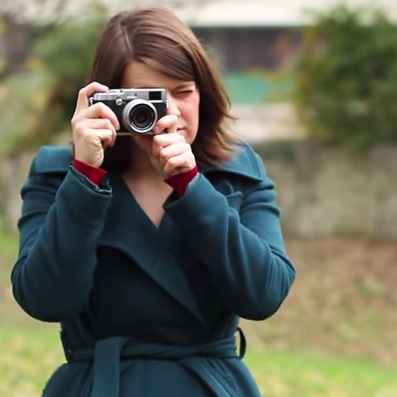Do waterproof cameras take good pictures?
Why should you consider a waterproof camera for your next trip?


Get all the latest news, reviews, deals and buying guides on gorgeous tech, home and active products from the T3 experts
You are now subscribed
Your newsletter sign-up was successful
In a world where your smartphone can produce fantastic photographs in almost every situation, there’s still plenty of room in the market for the best underwater cameras - especially if you want something tougher than the average smartphone can muster.
While top-line smartphones generally offer IP68 waterproofing, you’ll still face restrictions on how deep you can take your device, and for how long. For maximum reassurance for certain underwater scenarios, such as diving, snorkelling or even just trips to the beach, swimming pool or river, a true waterproof camera will ensure you get snaps that just aren’t possible from other types of device.
But the big question remains - can you actually get decent pictures from one of these waterproof cameras?
The answer to that is a resounding yes - but with some compromises and caveats to be aware of. Almost all compact cameras use small 1/2.3-inch sensors, meaning that you shouldn’t expect the same level of performance you’d see from your DSLR or mirrorless camera, and sometimes even your smartphone might be able to outdo it.
It’s also true that some underwater cameras and the best action cameras are much better than others, so it’s worth investing some time thinking about exactly which one to buy. If you’re not sure, see our feature on the best underwater camera you can buy.
If you’re tempted to buy an underwater camera, have a think about some of the pros and cons:
Pros of underwater cameras
- Can be used in deeper water than average smartphone
- Also generally feature tough credentials so can withstand knocks and scrapes
- Usually feature zoom lenses
- Usually include specialised underwater shooting modes to help you take the best pictures
Cons of underwater cameras
- Small sensors
- Poorer image quality compared to DSLR / mirrorless
- Usually quite basic in operation
- Can be a waste of money if to used all that frequently
How to buy the best underwater camera:
To maximise your chances of getting high image quality from your underwater camera, have a think about some of the following features and specifications:
Get all the latest news, reviews, deals and buying guides on gorgeous tech, home and active products from the T3 experts
Lens Quality
This is an excellent way to ensure you get the best possible pictures from an underwater camera - and indeed any type of camera with a fixed lens.
Ideally, you’ll be looking for a model which offers a wide maximum aperture, such as f/2.0, to let in as much light as possible. When shooting underwater, light is restricted, so the more you can let reach the sensor, the better chance you’ll stand.
A good example is the Olympus Tough TG-6, which boasts a 4x optical zoom lens with an f/2.0-f/4.9 aperture. Cheaper models, such as the Fujifilm XP140, for example, have a maximum aperture of f/3.9.
Sensor size and resolution
Almost all of the waterproof cameras on the market are compact models which use 1/2.3-inch sensors. That’s pretty small by modern standards, but, it helps to keep the overall size of the device down. It’s easier to differentiate between pixel counts for the best image quality. Although a higher resolution might sound preferable, on a smaller sensor, it actually makes more sense for it to be relatively low, such as the Olympus Tough TG-6’s, which is 12 megapixels. Others on the market are generally around 16 megapixels, which is fine, but don’t be disappointed that you’re not seeing the same kind of high numbers you’ll see elsewhere.
Waterproofing credentials
Not all waterproof cameras are created equal, and how much waterproofing you need will very much depend on the type of activity you like to get up to. If you’re into deep diving, then you’ll need one which boasts more depth than something which is intended for lighter activities, such as snorkelling and swimming.
Be prepared to make a compromise on image quality if you need the camera to go particularly deep, but if you think you’ll never need to go deeper than 10-15 metres, you can afford to go for models which offer the better performance.
Underwater shooting modes
One of the advantages of specific underwater cameras is that they’ll often have underwater shooting modes to make the best of the situation they're in. That should mean you end up with accurate colours in particular, which might otherwise throw off your camera’s automatic / general settings.
Manual controls and raw format shooting
Most underwater cameras are fairly simple point-and-shoot type devices, but if you’re an enthusiast worried about the quality offered by underwater models, look out for those which offer manual recording modes, or even better, raw format shooting. With the latter, you’ll be able to more easily make adjustments in post-processing software such as Photoshop.
Should I buy an underwater camera?
There’s no right or wrong answer when it comes to considering whether or not to buy a waterproof camera.
The good news is that most underwater cameras these days are available at relatively affordable prices, so the outlay isn’t too massive should you decide to go for it. If you’re somebody that regularly goes diving or snorkelling, it makes a lot of sense to buy one - and to buy the best that you can.
On the other hand, if you’re somebody is tempted by a waterproof camera for “lighter” reasons, such as for days out, trips to the swimming pool or beach, then you may well be satisfied by one of the cheaper waterproof models on the market - or perhaps even your phone will do (check the waterproofing credentials of your smartphone before dunking it though!).
Lastly, you might want to also consider whether you can convert your existing camera set up. You can buy an underwater housing for many DSLR and mirrorless cameras. These are generally fairly expensive, but if you want (or need) the best possible image quality, it’s another route to consider - and is arguably better value for serious users.
For more guidance, check our guide to the best underwater cameras.
Amy Davies is a freelance journalist that covers cameras for T3 and many other sites. She is also Features Editor at Amateur Photographer magazine and, when she's not writing about cameras, she's probably taking pictures of her cute dog.
